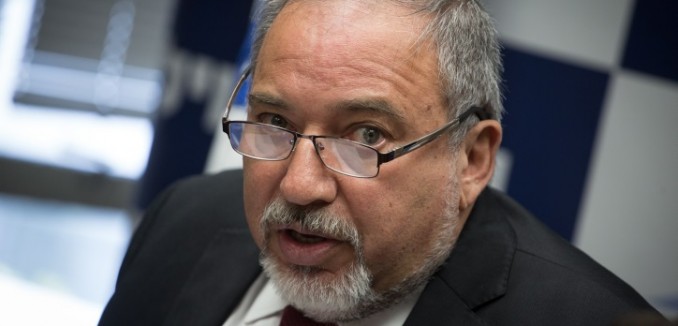It is an open secret that the Palestinian Authority pays salaries to convicted terrorists and stipends to the families of terrorists killed in action. In response, last week Israel designated the Palestinian National Fund, the treasury of the Palestine Liberation Organization, as a terrorist group, accusing it of serving as a conduit for the transfer of those funds. Defense Minister Avigdor Liberman cited the body’s “continuous and sustained support to entities responsible for serious terrorist activity against Israel” as grounds for the new designation.
Incensed by the Palestinian Authority’s financial encouragement of terrorism, Israel has deducted the equivalent sum of these “prisoners’ payments” from the tax revenues it collects on the PA’s behalf since July 2016. Since these financial penalties have not deterred the Palestinian government, Israel’s latest decision is intended to foil the money-laundering schemes that finance the payments.
In August 2014, the Palestinian Authority transferred responsibility for prisoners’ payments from its Prisoners’ Affairs Ministry, which it abolished, to a new commission subordinate to the PLO. Legally, the PLO is distinct from the PA, recognized as the “sole legitimate representative” of the Palestinian people, while the Palestinian Authority is an administrative body created by agreement between the PLO and Israel in the Oslo Accords. This technicality enabled the Palestinian Authority to allay, or attempt to allay, the international community’s concern that foreign aid money was subsidizing terrorism.
According to all indications, however, nothing really changed. In an April 2016 report, watchdog group Palestinian Media Watch asserted that the old ministry and the new commission were “identical in everything but name.” They both report to the same man, President Mahmoud Abbas, who heads both the PA and the PLO. The new commission is headed by a former Prisoners’ Affairs minister, Issa Qaraqe. And the Palestinian Authority’s Ministry of Finance continues to be responsible for prisoners’ payments.
The Palestinian Authority finances these payments by simply transferring money via the Palestinian National Fund. According to the Palestinian Media Watch report, a year after the “closure” of the Prisoners’ Affairs Ministry, the PA increased its payments to the PLO by 481 million shekels, a sum equivalent to the abolished ministry’s budget plus a ten percent increase. That is to say, the PA Finance Ministry transferred the money to the treasury of the PLO, which has now been designated a terrorist entity.
Israel ceased to recognize the PLO as a terrorist organization in 1993 with the signing of the Oslo Accords. As a result of the new designation, however, Israel will now treat the PLO’s treasury as a terrorist organization. This is why PA President Mahmoud Abbas attacked the designation as a “fundamental violation of the Oslo Accords,” on the grounds that it appears to backtrack on the mutual recognition formalized in that agreement. Abbas is calling on Israel to reverse the designation, arguing it “would blow up the legal agreement [that underpins] the relationship with Israel.”
Why, then, did Liberman just outlaw a department of the PLO?
He likely did so because the designation serves to increase Israel’s political leverage over the PA at a time when this leverage is surprisingly limited.
Israel is concerned by the Palestinian policy of seeking international recognition as an independent state in lieu of peace negotiations. Its ability to pressure the PA, however, is constrained: making Israel’s civil policy in the West Bank more restrictive would harm economic growth, foment resentment, and generate international concern and bad headlines. Additionally, Israel fears that weakening the Palestinian Authority would only serve to boost the popularity of Hamas as an alternative government, so it is reluctant to expose it to public criticism.
Liberman supports a “carrot-and-stick” policy in the West Bank, rewarding actors that cooperate with Israel and punishing those who promote terror. Crucially, Liberman has previously explicitly proposed confiscating terrorism funds as a form of punishment.
His decision to designate the Palestinian National Fund a terrorist organization thus puts the PLO on notice. The Defense Minister may now order the confiscation of a terror entity’s assets. He is not required to, but he can. A Defense Ministry statement says that “necessary steps will be taken…to seize and forfeit” the Palestinian National Fund’s assets, but there is a vast range of possible enforcement actions that Israel could take. How far Israel goes is now up to Liberman.
Palestinian leaders have thus been put on notice that Liberman can at any moment order the confiscation of vast assets. This could even take the form of raids on banks and financial institutions in areas under PA control, as Israel has done in the past. Liberman’s announcement reminds Palestinian leaders that their powers of patronage based on controlling this money remain dependent on Israeli policy. It signals that Israel is prepared to take punitive action against the Palestinian government if it provokes Israel.
Put simply, this policy serves as a Sword of Damocles over Abbas’ head. When considering his next steps, the PA president will have to contemplate how likely Liberman is to cut the thread.
Eylon Aslan-Levy is an Israeli news anchor and political commentator. He is a graduate of Oxford, Cambridge and the IDF.
[Photo: Hadas Parush / Flash90]




